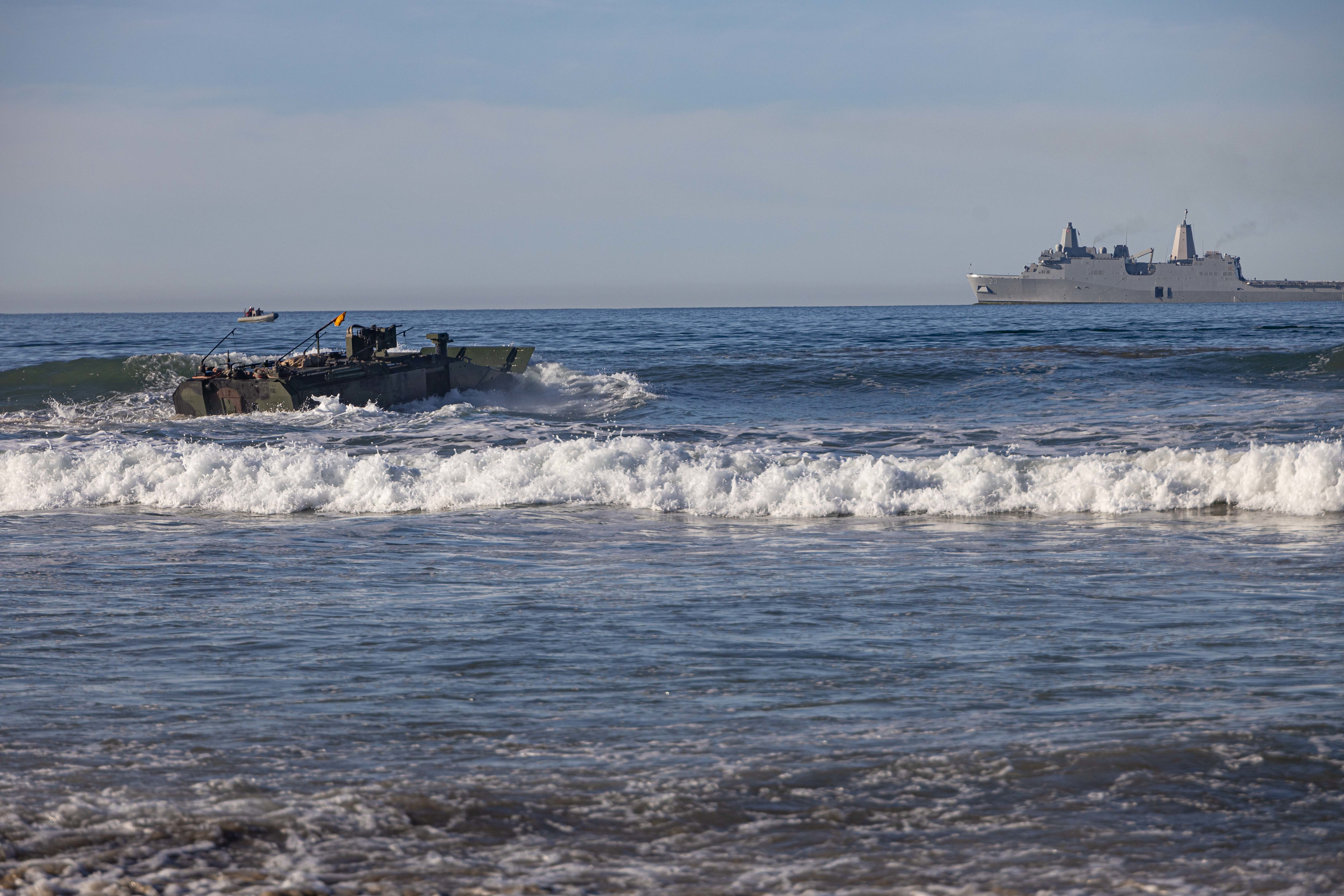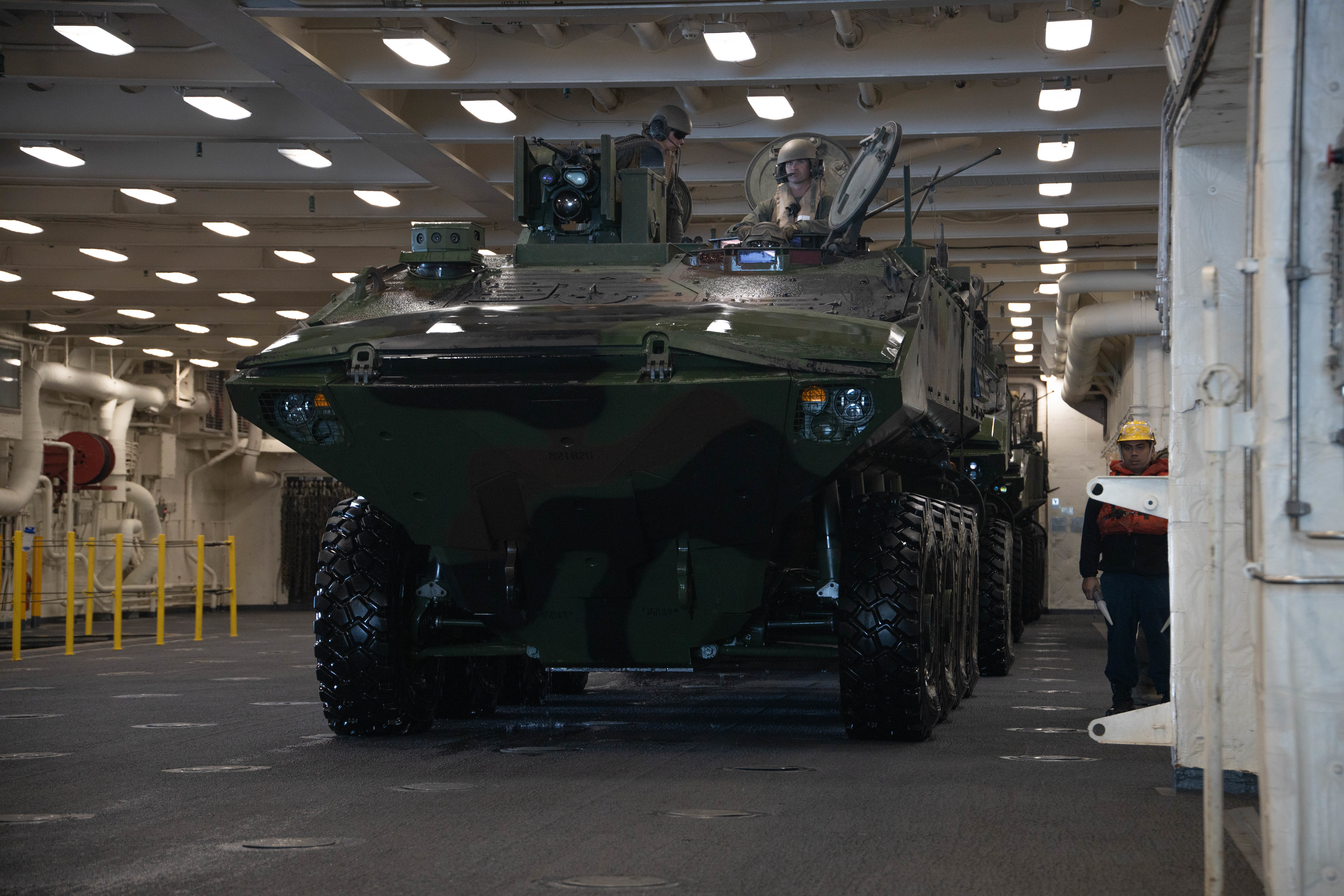
The Marines cleared the Amphibious Combat Vehicle to return to sea for training after a two-month pause following an incident that disabled two ACVs in California, the service announced on Thursday afternoon.
The service took the ACVs out of the water days after heavy surf tipped over two of the vehicles, disabling them, off the coast of Camp Pendleton, Calif., in July. The Marines conducted an internal review of the safety margins of the ACVs following the incident and set the current surf limit at four feet.
“The interim maximum surf conditions identified include a significant breaker height of four feet, which allows the ACV to operate safely while maintaining a high-state of readiness for the ACV community,” according to the Thursday statement from the service.
The surf conditions in July that disabled the two ACVs surged from 8 to 10 feet, according to the National Weather Service.
“The interim maximum surf conditions are conservative and derive from existing safe operating surf conditions for U.S. Navy and Marine Corps landing craft and allows the service to better understand surf conditions through ongoing vehicle testing,” according to the statement.
As the BAE Systems-built vehicles return to the water, the Marines will continue to evaluate and potentially expand the operational margins of the ACVs.

The resumption of at sea training still may not provide enough time for the service for the to deploy ACVs for the first time with the Makin Island Amphibious Ready Group and 13th Marine Expeditionary Unit, USNI News understands.
In July, USS Makin Island (LHD-8), USS John P. Murtha (LPD-26) and USS Anchorage (LPD-23 completed certifications to deploy the ACVs as part of the Amphibious Squadron Marine Expeditionary Unit Integration Training (PMINT).
Two defense officials told USNI News in late August, it was unlikely the ACVs would be part of the upcoming deployment later this year. Despite Thursday’s loosening of ACV restrictions on open water, USNI News understands the vehicles still won’t deploy aboard the Makin Island ARG.
The ACVs is set to replace the Marines’ legacy Amphibious Assault Vehicles. The service AAVs were permanently banned from water operations in December. In 2020, an AAV sank off the coast of California killing eight Marines and one sailor, which prompted the water ban from the service.





